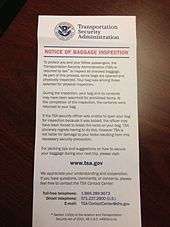Definify.com
Webster 1913 Edition
Notice
No′tice
,Noun.
1.
The act of noting, remarking, or observing; observation by the senses or intellect; cognizance; note.
How ready is envy to mingle with the
notices
we take of other persons! I. Watts.
2.
Intelligence, by whatever means communicated; knowledge given or received; means of knowledge; express notification; announcement; warning.
I . . . have given him
notice
that the Duke of Cornwall and Regan his duchess will be here. Shakespeare
3.
An announcement, often accompanied by comments or remarks;
as, book
notices
; theatrical notices
.4.
A writing communicating information or warning.
5.
Attention; respectful treatment; civility.
To take notice of
, to perceive especially; to observe or treat with particular attention.
Syn. – Attention; regard; remark; note; heed; consideration; respect; civility; intelligence; advice; news.
No′tice
,Verb.
T.
[
imp. & p. p.
Noticed
; p. pr. & vb. n.
Noticing
.] 1.
To observe; to see; to mark; to take note of; to heed; to pay attention to.
2.
To show that one has observed; to take public note of; remark upon; to make comments on; to refer to;
as, to
. notice
a bookThis plant deserves to be
noticed
in this place. Tooke.
Another circumstance was
noticed
in connection with the suggestion last discussed. Sir W. Hamilton.
3.
To treat with attention and civility;
as, to
. notice
strangers
Syn. – To remark; observe; perceive; see; mark; note; mind; regard; heed; mention. See
Remark
. Webster 1828 Edition
Notice
NO'TICE
,Noun.
1.
Observation by the eye or by the other senses. We take notice of objects passing or standing before us; we take notice of the owrds of a speaker; we take notice of a peculiar taste of food, or of the smeel of an orange, and of our peculiar sensations. Notice then is the act by which we gain knowledge of something within the reach of the senses, or the effect of an impression on some of the senses.2.
Observation by the mind or intellectual power; as, to take notice of a distinction between truth and veracity.3.
Information; intelligence by whatever means communicated; knowledge given or received; as, I received notice by a messenger or by letter. He gave notice of his arrival. The bell gives notice of the hour of the day. The merchant gives notice that a bill of exchange is not accepted.4.
A paper that communicates information.5.
Attention; respectful treatment; civility.6.
Remark; observation.NO'TICE
,Verb.
T.
1.
To observe; to see. We noticed the conduct of the speaker; we notcied no improper conduct.2.
To heed; to regard. His conduct was rude, but I did not notice it.3.
To remark; to mention or make observations on.This plant deserves to be noticed in this place.
Another circumstance was noticed in connection with the suggestion last discussed.
4.
To treat with attention and civilities; as, to notice strangers.5.
To observe intellectually.Definition 2026
notice
notice
English

A Notice of Baggage Inspection issued by the Transportation Security Administration of the USA which was placed inside a piece of luggage after it had been searched
Noun
notice (plural notices)
- (chiefly uncountable) The act of observing; perception.
- He took no notice of the changes, and went on as though nothing had happened.
- 1893, Walter Besant, The Ivory Gate, Prologue:
- Athelstan Arundel walked home […], foaming and raging. […] He walked the whole way, walking through crowds, and under the noses of dray-horses, carriage-horses, and cart-horses, without taking the least notice of them.
- Isaac Watts (1674-1748)
- How ready is envy to mingle with the notices we take of other persons?
- (countable) A written or printed announcement.
- Shall we post a notice about the new policy?
- I always read the death notices in the paper.
- (countable) A formal notification or warning.
- The sidewalk adjacent to the damaged bridge stonework shall be closed until further notice.
- (chiefly uncountable) Advance notification of termination of employment, given by an employer to an employee or vice versa.
- I gave her her mandatory two weeks' notice and sacked her.
- I can't work here any longer. I'm giving notice.
- (countable) A published critical review of a play or the like.(Can we add an example for this sense?)
- (uncountable) Prior notification.
- I don't mind if you want to change the venue; just give me some notice first, OK?
- William Shakespeare (1564-1616)
- I […] have given him notice that the Duke of Cornwall and Regan his duchess will be here.
- (dated) Attention; respectful treatment; civility.
Derived terms
Derived terms
Translations
act of observing
written or printed announcement
|
formal notification or warning
|
notification of termination of employment
published critical review
Verb
notice (third-person singular simple present notices, present participle noticing, simple past and past participle noticed)
- (transitive) To acknowledge the presence of; observe.
- 1991, Gregory Widen, Backdraft
- So you punched out a window for ventilation. Was that before or after you noticed you were standing in a lake of gasoline?
- 2013 July 20, “Welcome to the plastisphere”, in The Economist, volume 408, number 8845:
- [The researchers] noticed many of their pieces of [plastic marine] debris sported surface pits around two microns across. Such pits are about the size of a bacterial cell. Closer examination showed that some of these pits did, indeed, contain bacteria, […].
- Did you notice the flowers in her yard?
- 1991, Gregory Widen, Backdraft
- (transitive) To detect; to perceive with the mind.
- I noticed that the dog hadn't barked the night of the murder.
Synonyms
Antonyms
Translations
to observe
|
|
to detect
Statistics
Most common English words before 1923: reading · German · seven · #777: notice · week · stone · tree
Anagrams
French
Etymology
Noun
notice f (plural notices)
- instruction
- Avez-vous lu la notice avant de monter le meuble?